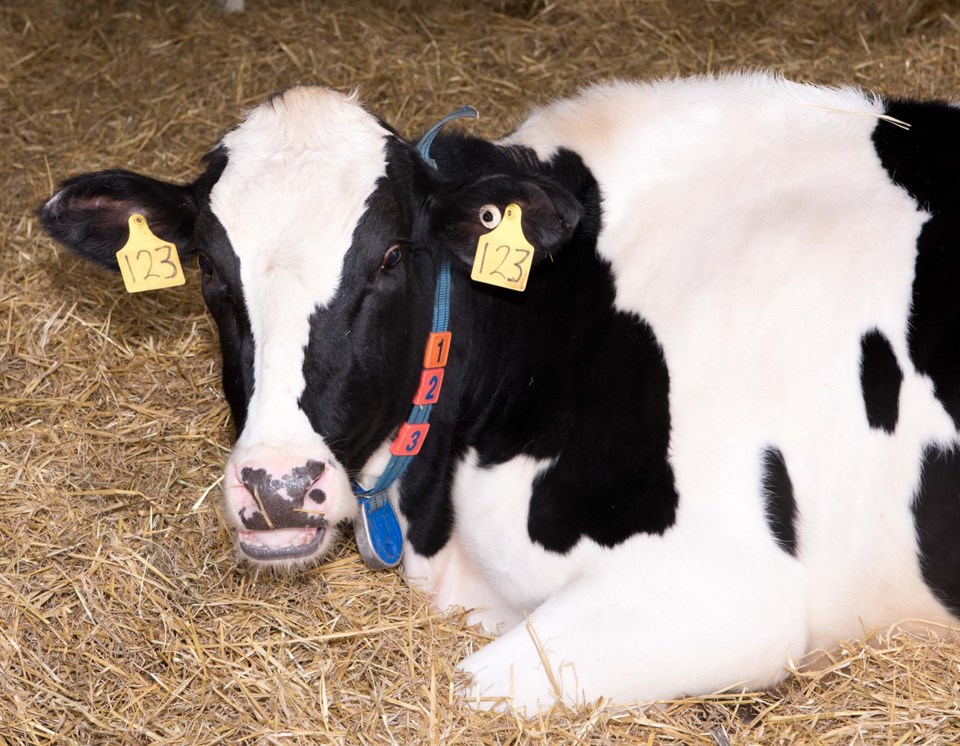Alberta farmers will get less milk from their cows in the years ahead because of global heating, even if they use the latest in cooling technologies, a new study suggests.
Agricultural economics professor Ayal Kimhi of the Hebrew University of Jerusalem co-authored a study July 5 in Science Advances on the effects of extreme heat events on milk production.
Heat-trapping pollution, primarily from fossil fuels, is putting Canadians at greater risk of extreme heat. St. Albert is set to experience about eight times more plus-30 C days a year than it does today by the 2060s (about 24.3 compared to the current 3.1), the city’s climate adaptation plan reports.
Heat affects cows, with Israel’s cows producing noticeably less milk in the hot summer than they do in the cool winter, Kimhi said. He and his team sought to find out just how badly heat affects milk production and the degree to which technology can help offset its effects.
Hot cows
To do so, they took the daily milk production records of about 130,000 cows in Israel over 12 years and linked them to hourly local weather reports, and surveyed about 300 farmers about their use of cooling technologies.
The team found that a cow’s milk output dropped significantly on hot, humid days. Cows produced about 9.6 per cent less milk per day when the wet-bulb temperature (a measure that accounts for both heat and humidity) exceeded 26 C, compared to 3.7 per cent less at 22-24 C and 1.6 per cent less at 18-20 C. It took cows more than 10 days to get back to regular production levels after being exposed to a day of plus-26 C heat.
Cows have to spend more energy on sweating when it’s hot, which means less energy for milk production, Kimhi explained.
“In the most extreme hot days, cows can produce up to 10 per cent less milk.”
While almost everyone in Israel uses fans, sprayers, and other techniques to keep cows cool, the team found these measures did not fully offset losses caused by extreme heat. At 18-20 C, cooling systems cut losses by about half. At plus-24 C, they reduced them by about 40 per cent. Still, the team found that farmers that did install cooling systems for their cows would recover their costs in about 1.5 years.
The team noted extreme humid heat events had doubled in frequency worldwide in the last 40 years and were predicted to become widespread because of global heating. Without efforts to adapt, such heating could cut milk production among major producers by four per cent by 2050.
Adaptation limits
“Climate change will have wide-ranging impacts on what we eat and drink, including that cold glass of milk,” study co-author Eyal Frank said in a media release.
“Our study found that extreme heat leads to significant and lasting impacts on milk supply, and even the most high-tech, well-resourced farms are deploying adaptation strategies that may be an insufficient match to climate change.”
Kimhi said farmers could compensate for heat-related losses by raising more cows, but that would mean higher costs and more cow-related heat-trapping pollution. Farmers may have to instead pick cows that are more heat-resistant, even if they are less productive; their study found that the most productive cows were also the most heat-sensitive.
Extreme heat does put a damper on milk production, said Jason Crozier of Sturgeon County’s Cheslen Dairies. He uses high ceilings, temperature-controlled windows, and “big-ass fans” to keep his cows cool, while farmers in hotter areas like Arizona use water sprayers. Farmers will likely have to get more fans and heat-resistant cows to compensate for the heat-related losses predicted in this study.
“At the end of the day, we just want to keep those cows happy, and when they are happy, they produce better.”




